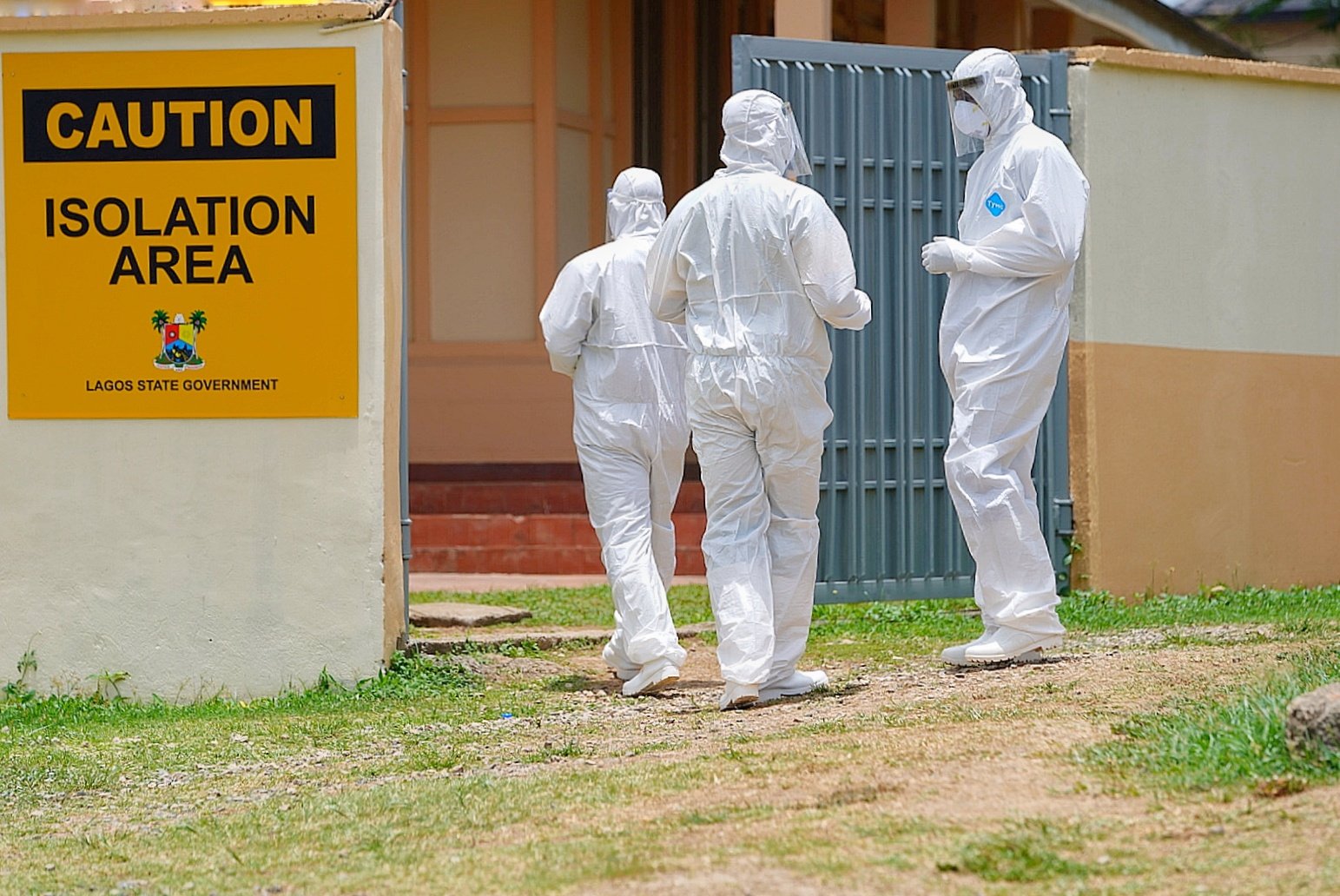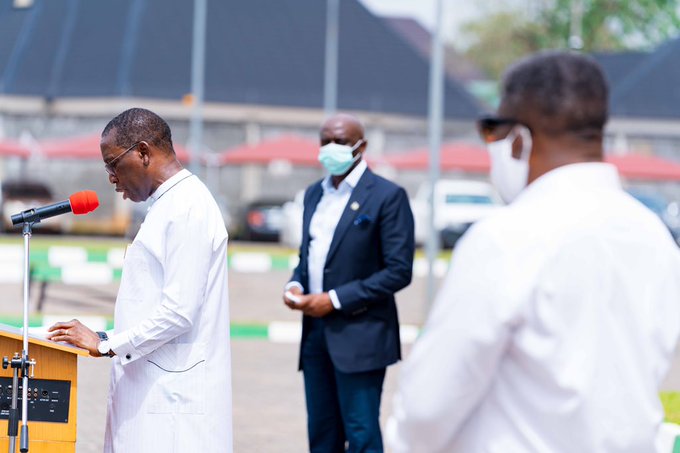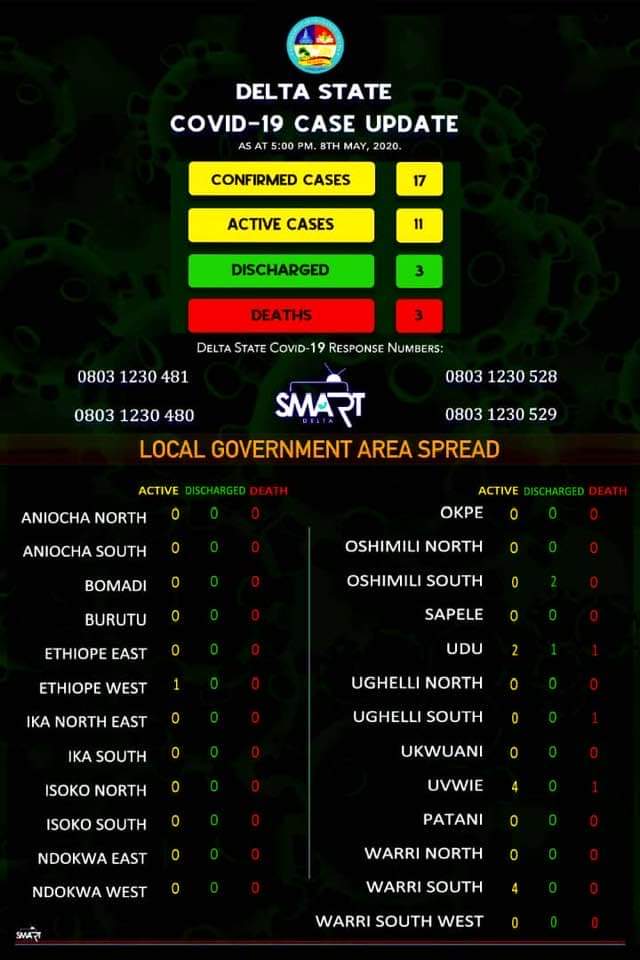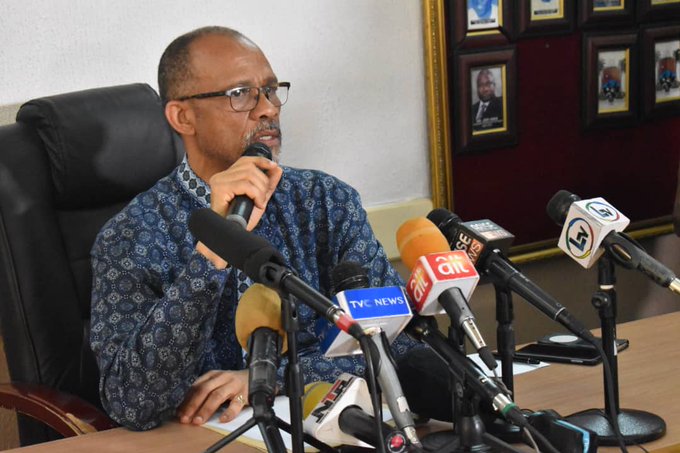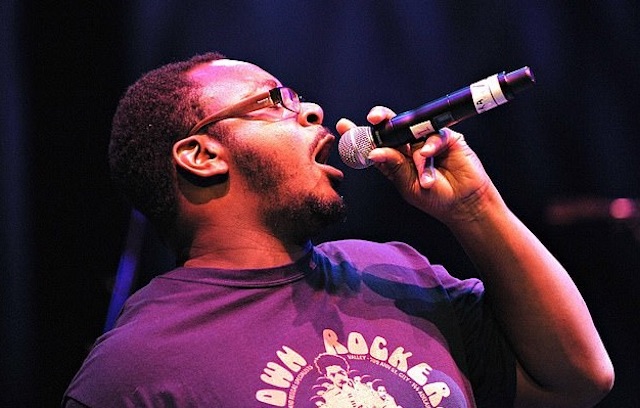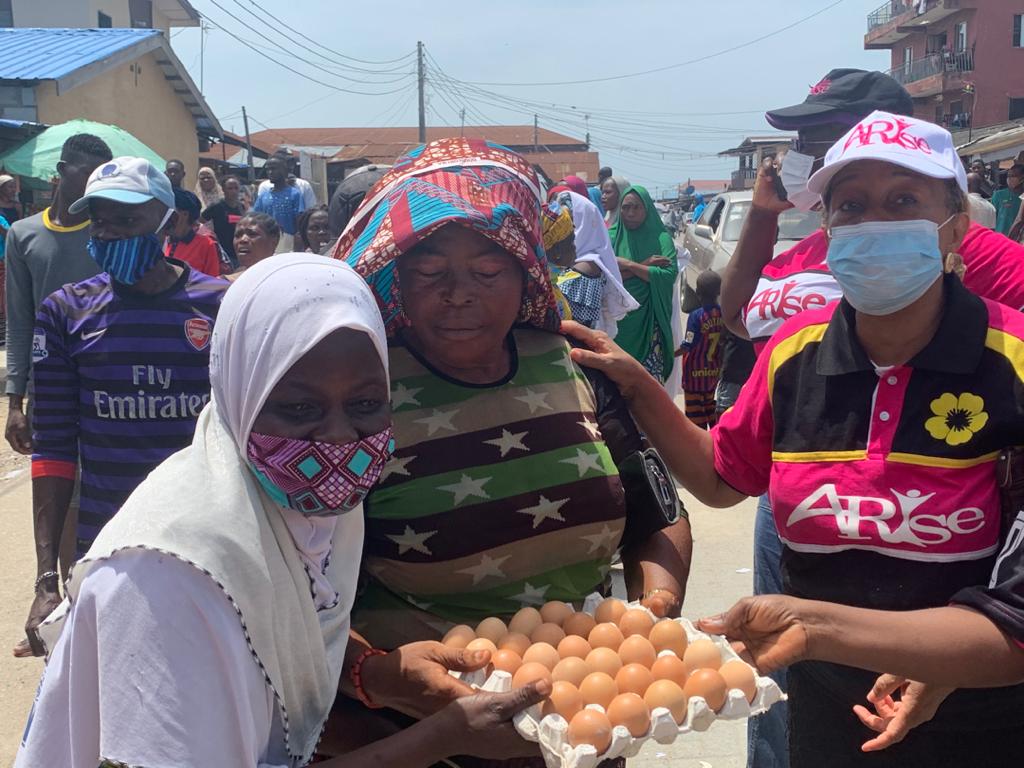By Bisi Adeleye-Fayemi
Last week I was invited to be part of a COVID-19 Talk Series called ‘Life and Livelihood’ hosted by Professor Konyinsola Ajayi of Emmanuel Chapel, Methodist Church, Lagos. Professor Ajayi asked me to join Mr Folusho Phillips, Mr Tunji Lardner and Ms Zouera Youssoufou to reflect on how COVID-19 is affecting life and livelihoods in Nigeria. Drawing on our respective involvement in government, corporate and civic sectors, we shared experiences for ninety minutes and agreed a number of ways forward. I am not a big fan of Webinars because I find the constant disruptions due to the networks rather frustrating. I however accept that we are dealing with new realities at the moment, and as we cut down or cut out journeys to attend meetings in person, Zoom meetings are part of our ‘New Normal’. I am hereby sharing some highlights of my interventions at the Webinar and responses to questions that were posed to me.
WHAT I FEEL ABOUT TODAY’S COVID19 REALITIES:
I am deeply saddened that lives and economies have been ruined, and that vulnerable people have been made even more so and are now desperate. I am concerned that every institution that we have is being strained to the limit, and pre-existing fragilities have been exacerbated. The investments that we have been unable or failed to make have caught up with us, specifically in healthcare systems, technology, education, agriculture and social inclusion. In spite of the ways in which COVID19 has devastated communities and economies, it seems as if we still do not fully grasp what we are dealing with. President Yoweri Museveni of Uganda has likened COVID19 to a war, and he has told his people that in wartime, people follow orders. People listen to instructions or they will be in danger. I might not agree with the politics of President Museveni these days (I used to be a big fan) on this score, I agree with him. If we are unable to get this pandemic under control, the lockdowns will be repeated, and they will be enforced in very undesirable ways. The thought of a country of approximately 200 million people exploding is not something we should even imagine.
Having said all this, I am hopeful. This crisis presents us with an opportunity to take stock, especially leaders at all levels, and assess what is really important to us. The government has its own roles to play, but citizens outnumber those in government. What should our role be? I see leaders everywhere, in the corporate sector, churches, mosques, unions, alumni associations, social clubs, the list is endless. What is required is synergy to ensure that we can fill gaps and cover as much ground as possible.
HOW DO WE BUILD SUSTAINABLE AND CARING INSTITUTIONS?
Every society needs three core sectors to function optimally. They are the public, private and civic sectors. They cover all our fields of endeavor. Each of these sectors need institutions that can guarantee their sustainability and enable them fulfill any form of social contract with the people they claim to represent or serve. I see three things as important here:
- Core Values: Building sustainable, caring institutions starts from agreeing core values anchored on integrity, dedication to service, inclusion, communal responsibility and non-discrimination. Here, I would like to acknowledge Mr Femi Adeoye, our hero from Ekiti State who insisted on giving his son up to the authorities as a consequence of flouting lockdown orders. Honest and forthright people like Mr Adeoye are hard to come by, and these are the kind of people we need to ensure that private and public institutions are sustainable.
- Relevance: Sustainable, caring institutions should be able to identify and solve problems. They should be relevant to the needs of people and they should be able to have systems in place to scale up success stories and adapt to a changing environment.
- Leadership: Key to building and sustaining institutions is the issue of leadership. We need the kind of leadership that can facilitate partnerships across these sectors, analyse trends and future scenarios and leverage the human, financial, technical and material resources needed. We need the kind of leadership that is always concerned about who is being left out or left behind. We need leaders who are able to think and act with no box in sight.
The civic sector needs to be taken more seriously in Nigeria. All of us as citizens make up this civic space, yet it is the least supported of the sectors. It is seen as a place where people spend their leisure time, earn an income because the other sectors are closed to them or simply while away the time till something better comes along. Civic spaces are meant to enhance voice and agency of citizens, fill in service delivery gaps and hold the public and private sector accountable, whilst at the same time, being willing to be held accountable.
Nigerian CSOs have just written a joint memo on the COVID-19 Response. I hope the relevant government authorities will be open to working with them on this.
WHAT ARE THE PECULIAR CHALLENGES OF DELIVERING PUBLIC GOODS AND SERVICES BY GOVERNMENTS
Trust: People simply do not trust their political leaders or the government. Government officials and institutions do not seem to engender confidence in the public due to countless examples of corrupt practices. Almost every act of the government is viewed with suspicion. A lack of trust breeds minimal engagement and ownership of critical processes, for example payment of taxes or following governments’ directives. Government officials need to earn the trust of the public through effective and regular communication on what is going on, acts of transparency, leading by example and treating people with respect.
Lack of adequate financial resources: Government resources are finite. Even when there are instances where things could be reprioritized, there is a limited amount of resources to go round and this hampers growth and development. With the virtual collapse of the oil economy, there is going to be even less to work with.
Resistance to change: This is very common at Federal and State level. There are those who profit from non-existent, dormant, vague or ambiguous policies and processes. When new leaders emerge and try to do things differently, they become Public Enemies. It takes a great amount of courage and discipline to face down these barriers and take on ‘Powers and Principalities’, and they can be found everywhere.
Lack of relevant data. It is hard to plan for service delivery if we do not have the data required. What is our population in Nigeria? How many qualify as poor? What are the education levels? Are the figures gender disaggregated? Who needs what, where?
We also have the perennial problems such poor infrastructure – lack of power, roads, transport systems, water and sanitation are all major problems. There is also the issue of communication. In a society where many people live in remote, inaccessible areas, without access to technology, communicating accurate information is quite difficult. People then rely on information that they have no way of knowing is untrue or incomplete.
WHAT ARE THE IMPLICATIONS OF COVID19 FOR WOMEN?
Women constitute 50% or more of the informal economy, and they shoulder the burden of care for children, spouses, the elderly and the sick. There is a lack of access to care for pregnant women and women in need of sexual and reproductive health services. We also have millions of persons living with disabilities with at least half of them women. There are many women in violent relationships and they suffer greatly during lock downs, living in fear for their lives. In several instances, law enforcement agents have brutalized citizens under the pretext of enforcing lockdowns, and a good number of these victims have been women. Even though some governments and NGOs have been working to address this situation, their resources have been overstretched.
It is important to involve women in key positions at the Federal and State COVID Task Forces. We need to provide information on where services can be accessed if neighborhood services are unavailable. Those working on Gender Based Violence (GBV) services should be counted as essential and exempt from lockdown restrictions. It is also important to prioritise women as beneficiaries of palliatives or stimulus packages
GOING FORWARD: LOCKDOWNS OR LET OUTS?
Our COVID-19 response will have to be an evolving one, as we adapt to the trends and information locally and globally. We need the following:
- Purposeful and visionary leadership in the political, public, corporate and civic sectors
- The official COVID19 response can be led by our political leaders but has to be driven by sound medical advice and science. Now is not the time to play ‘big man, big woman’ games.
- Synergy of policies and actions at all levels, there is a role for everyone, we all just need to choose a path
- All of us need to own an understanding of COVID19 and its dangers and take personal responsibility
- Testing, testing, testing
- Appropriate rewards and remuneration of healthcare workers
- Ongoing sensitization and awareness raising in grassroots communities, using effective methods and credible voices.
- Acknowledge the added vulnerabilities of women and involve them in decision-making
- Discourage assemblies of people for the time being
- Encourage local research and trials of local remedies
- Invest in various ways of reaching disadvantaged children to minimize disruptions to their learning
- Agriculture and food security is vital
- Responsible and proactive media
- Kindness is no longer optional. It is the key to our survival.
